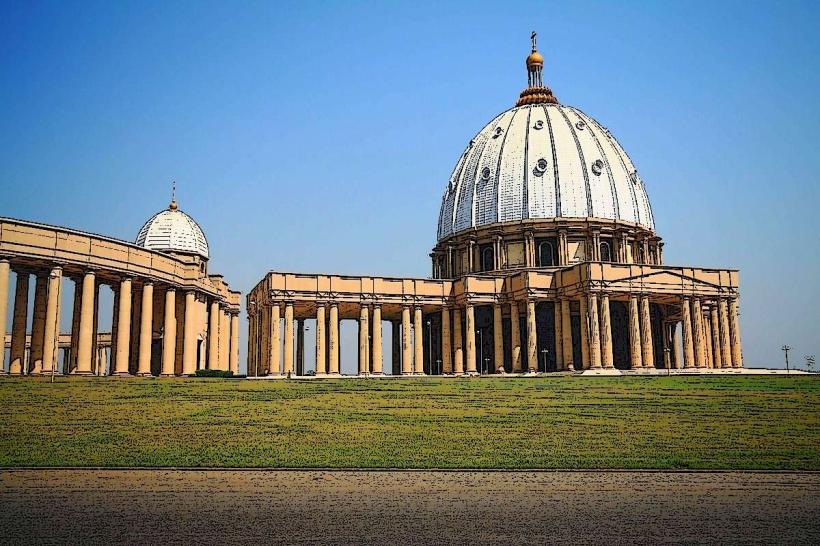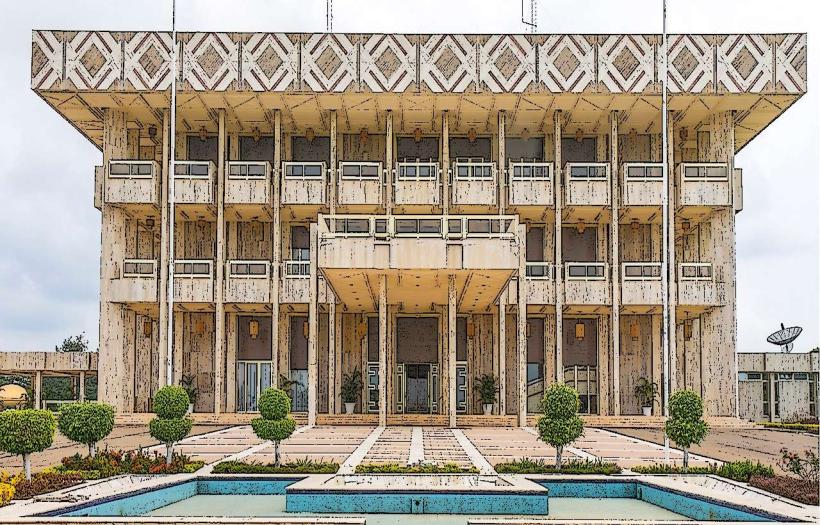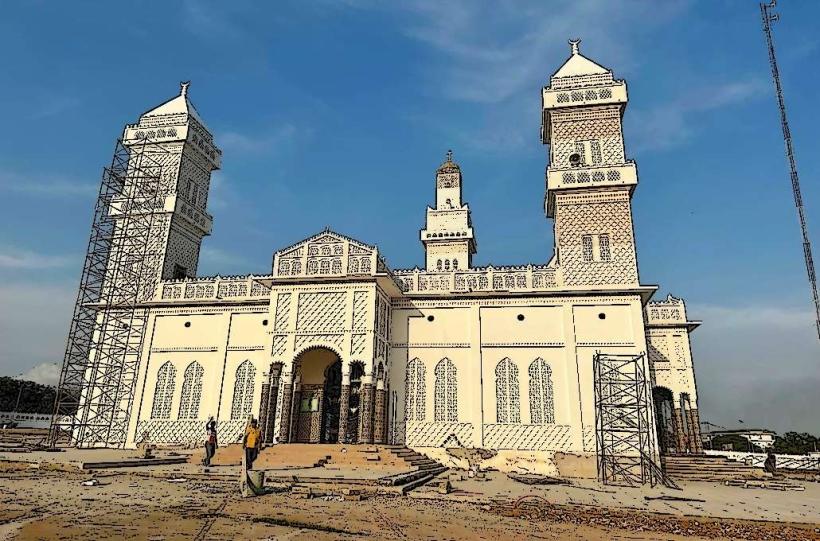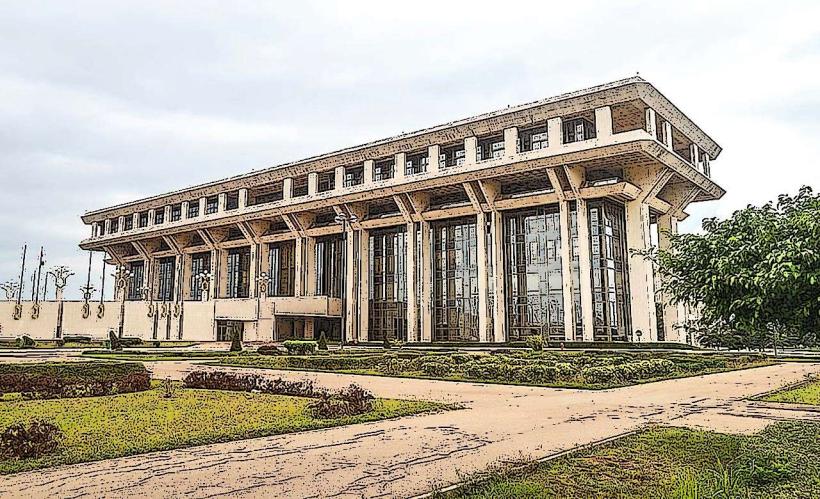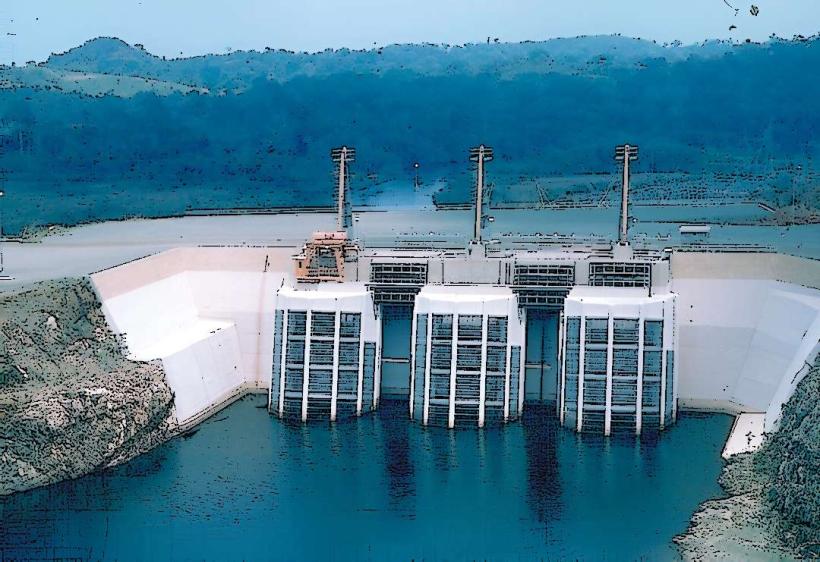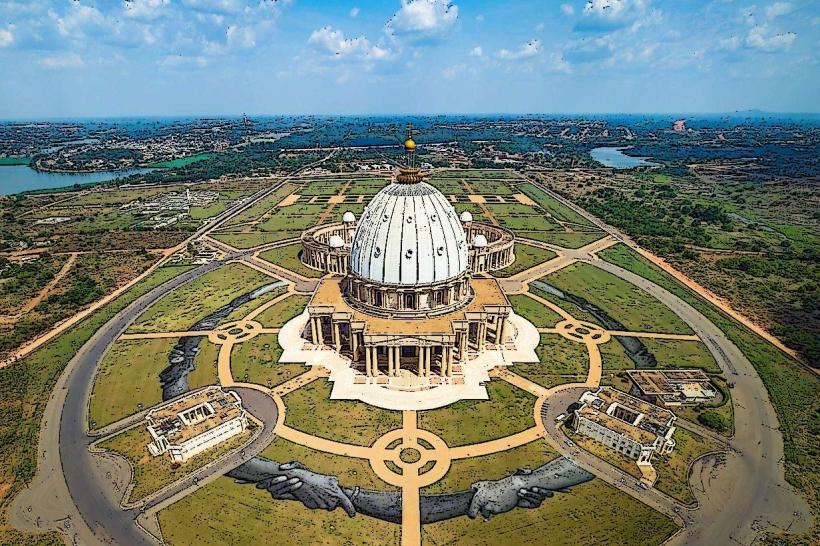Information
Landmark: Félix Houphouët-Boigny University (UFHB)City: Yamoussoukro
Country: Cote d-Ivoire
Continent: Africa
Félix Houphouët-Boigny University (UFHB), Yamoussoukro, Cote d-Ivoire, Africa
Université Félix Houphouët-Boigny (UFHB) is Côte d’Ivoire’s premier and largest public university. Situated in the Cocody district of Abidjan, this institution plays a central role in the country’s higher education system and research development. Originally known as the University of Abidjan, it was renamed in 2012 in honor of Félix Houphouët-Boigny, Côte d’Ivoire’s first president and a major figure in the country's independence.
1. Historical Background
Founded: January 9, 1964, as the University of Abidjan.
Reforms: In 1996, the University of Abidjan was split into several autonomous institutions. The largest and most important of these eventually became UFHB.
Renaming: In 2012, it was renamed after Félix Houphouët-Boigny and underwent major infrastructure renovations following the 2010–2011 post-electoral crisis.
2. Campus and Facilities
Location: The main campus is located in Cocody, a well-known university district in Abidjan, which is Côte d’Ivoire’s economic capital.
Size: The university covers a massive area and includes lecture halls, libraries, laboratories, student dormitories, sports complexes, and staff residences.
Infrastructure Modernization: After being closed during the political crisis, UFHB reopened in 2012 with modernized facilities, including:
Refurbished amphitheaters
New scientific laboratories
Computer centers and internet access
Improved student housing and cafeterias
3. Academic Structure
UFHB is organized into several Unités de Formation et de Recherche (UFRs) and Institutes, covering a wide range of disciplines. These include:
a. UFRs (Faculties)
UFR des Sciences Médicales (Medical Sciences)
UFR des Sciences Fondamentales et Appliquées (Basic and Applied Sciences)
UFR des Sciences Juridiques et Politiques (Law and Political Science)
UFR de Sciences Économiques et de Gestion (Economics and Management)
UFR de Sciences de l’Homme et de la Société (Humanities and Social Sciences)
UFR des Langues, Littératures et Civilisations (Languages and Literatures)
b. Institutes and Research Centers
Institut de Géographie Tropicale (IGT): Focused on geography and climate issues.
Institut Pasteur de Côte d’Ivoire (IPCI): Linked to medical and biological research.
Centre Ivoirien de Recherches Économiques et Sociales (CIRES): An economic and social science think tank.
Institut de Recherche Mathématique (IRMA): A national center for mathematical research.
4. Programs and Degrees
Undergraduate Programs: Typically three-year degrees (Licence) across all faculties.
Graduate Programs: Master’s degrees and Doctorates in fields such as medicine, engineering, law, and sciences.
Professional Programs: In law, medicine, pharmacy, accounting, economics, and engineering.
Technical and Vocational Training: Several faculties provide training designed for immediate employment or certification.
5. Research and Innovation
UFHB is considered a national leader in scientific research and regional research collaboration in West Africa.
The university plays a key role in public health research, notably through the Pasteur Institute and collaboration with WHO.
Ongoing research themes include:
Climate change and environmental science
Infectious diseases and tropical medicine
Political governance and regional integration
Agricultural innovation and food security
6. International Cooperation
Partnerships: UFHB collaborates with universities in France, Canada, Germany, China, and across Africa.
Exchange Programs: Includes student and faculty mobility with institutions in the Francophone world, often supported by AUF (Agence universitaire de la Francophonie).
Joint Research: Works with institutions like CNRS (France) and WHO on joint research, particularly in health and the environment.
7. Student Life
Enrollment: UFHB hosts over 50,000 students, making it one of the most populous universities in West Africa.
Student Services:
Health services on campus
Cafeterias and dining halls
Student clubs and cultural groups
On-campus sports facilities including football fields, courts, and a gym
Challenges: While improvements have been made, student housing and access to technology remain areas with room for development.
8. Alumni
Many of Côte d’Ivoire’s most influential figures in politics, law, education, and business are alumni of UFHB. These include:
Simone Gbagbo: Former First Lady and academic.
Charles Blé Goudé: Former Minister for Youth.
Guillaume Soro: Former Prime Minister and Speaker of the National Assembly.
9. Role in National Development
UFHB is seen not just as an educational institution but as a pillar of national progress. It trains the civil servants, engineers, doctors, judges, and educators that serve across the nation. Its research helps inform public policy, especially in health, education, and agriculture.
10. Future Prospects
The university plans to expand into digital learning and open-distance education (EAD).
There is growing investment in STEM education and promoting entrepreneurship among students.
UFHB also aims to increase its visibility as a research university and become a regional hub for higher education in Francophone West Africa.
Université Félix Houphouët-Boigny remains a prestigious and strategically important institution in Côte d'Ivoire’s educational and scientific landscape, combining heritage, modern research, and forward-looking educational development.

